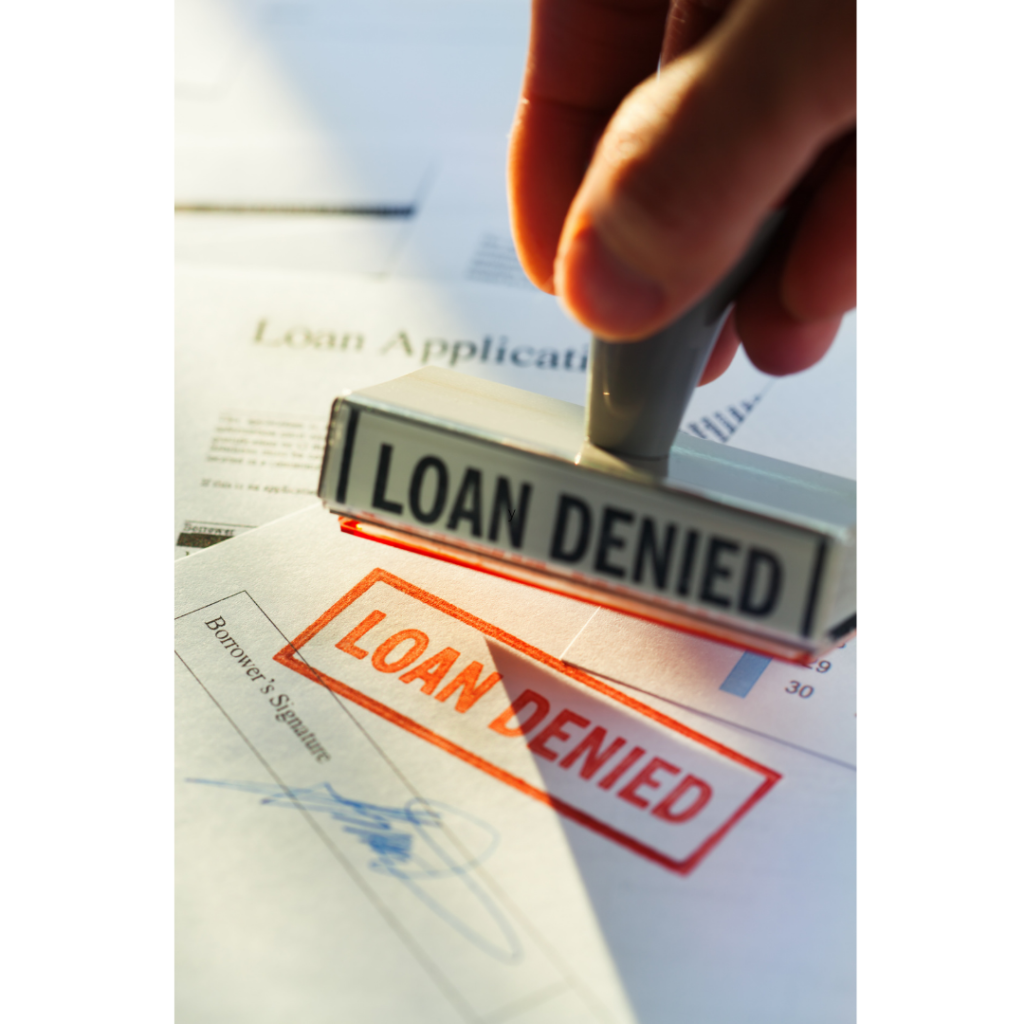What to do if your Mortgage Application to buy an Investment Property is rejected?
Best way to get a Mortgage for Investment Properties over $2,000,000
October 6, 2022
How to Calculate DSCR: A Simple Guide for the Savvy-ish Investor
April 25, 2023While it may be tempting to buy an investment property all-cash, especially in a hot seller’s market like the one we’re experiencing all across the U.S., as a real estate investor it’s typically best to secure a long-term mortgage. A long-term mortgage, of 15-, 20-, or even 30-years in length allows investors to take advantage of low-interest rates, and have a stable operating expense budget, that is not sent ratcheting up or down due to multiple loans and their accompanying interest rates.
It’s not uncommon for a real estate investor’s application for an investment property mortgage to be rejected. While usually securing a mortgage for an investment property is much more streamlined and straightforward than securing a loan for an owner-occupied home, there are several factors that can cause your application to be rejected by a lender. This can happen due to your credit score, the type of loan you are specifically applying for, the type of property you are choosing to get an investment property loan on.
If this does happen to you, though, know there are things that you can do. In this article, we’ll cover in detail all the different red flags that may cause your mortgage application to get rejected, before tackling the different next steps you can take to still get your loan approved.

What type of Mortgage can you get for an Investment Property?
In general, there are three main types of loans you can get for an investment property. These include a

The Loan Approval Process for an Investment Property
Let’s first take a step back and review the mortgage approval process for an investment property.
For Residential Properties
The approval process will largely depend on the asset type. Single-family homes or multifamily property with up to four residential units, are largely considered ‘residential’ loans and often borrowers face the most scrutiny and underwriting requirements when applying for an investment property mortgage.
Lenders that make residential loans will take into heavy consideration the borrower’s ability to afford all of the monthly mortgage payments for the investment property, as well as their ability to afford all of their other outstanding personal debts and monthly expenses. This means that during the loan approval process for a residential investment property, lenders are looking deeply at the information the borrower provided on their initial mortgage application. They will run the borrower’s personal credit history, they will verify their employment, as well as their income with the borrower’s employer. They will also request to see tax returns, paystubs, W-2 forms from the borrower for the preceding two years. Lenders will then take all the financial information they have gathered, and input it into a variety of affordability metrics to make sure the borrower essentially ‘passes’.
So if, for example, a real estate investor who owns their own home is looking to purchase a second home as a rental, the lender is going to examine their personal financial and credit history, as well as verify the investor’s income and ability to afford both properties. If the investor is making $5,000 a month, his current mortgage is $1,500 a month, and he has a $300 a month car note, it is very unlikely for a lender to approve this investor for a mortgage to buy an investment property that would require them to pay $2,500 a month mortgage. This is because their total debt payments would jump from $1,800 a month, which is what the investor can afford, to an unfeasible amount of $4,300 a month.
For Commercial Properties
In contrast, loans for investment properties that are commercial, retail, or multifamily with more than 5 units are considered ‘commercial’ real estate. Unlike residential real estate loans, commercial real estate loans are not based as much on the borrower’s personal financial history and credit score. Rather more lenders more heavily focus on the value of the property being financed, and its ability to generate a cash flow in amounts sufficient enough to cover the mortgage payments and all related expenses, such as property taxes, repair reserves, and insurance.
For this reason, if you’re applying for a loan to purchase an investment property that is commercial in nature, the lenders will of course verify all your personal, credit, and financial information, but they’ll pay greater attention to the underlying business plan you have for the property, what you plan to do, your experience owning similar properties, as well as the current income the property generates versus what it could generate in the future. As opposed to running your own personal data through their underwriting metrics, lenders will essentially treat the property as a person, and create complex models to determine how will the building can pay for itself. This loan process will also examine the local demographics, vacancy rates, and surrounding neighborhoods to make their ultimate determination for a loan. Which means, that if a mortgage application for a commercial investment property is denied, it may not necessarily indicate something is wrong with the borrower personally, and just the underlying real estate itself.

Why your Mortgage Application was denied?
The following are the main reasons why we see a mortgage application for investment property denied or rejected. Hopefully, by knowing what these are ahead of time you’ll be able to craft your mortgage application in a way to overcome these.
- You don’t have enough money. If the borrower doesn’t have enough money in their current bank accounts to close on the investment property then the lender will deny the application. While initially you may be thinking this is a given, keep in mind that there are many different, and hidden, fees that come with buying real estate, including those charged by the lender. So even if you have $100,000 in the bank, and can afford the 20% downpayment on a $500,000 investment property, you’ll still be denied because your savings are not enough to cover the additional costs, such as the loan origination fee, title insurance, and appraisal.
- Your debt to income ratio was too high. Even if you do have enough money, if your debt-to-income ratio is too high, lenders will likely reject your investment property mortgage application. The debt-to-income ratio (DTI) is used by lenders to determine how much debt a borrower can reasonably afford, which is calculated by dividing your total recurring monthly debts by your gross monthly income. Expressed as a percentage, the DTI ratio shows what portion of your monthly income is dedicated to just servicing, or paying off your existing, such as mortgage payments, credit card bills, personal lines of credit, business lines of credit, as well as the new debt you will take on if you were approved for the loan. For most lenders, a DTI ratio between 33% – 43% is considered acceptable, so of you apply and your DTI ratio is well above that, then it is very possible this is why you were denied.
- Poor credit of the borrower. If you have extremely poor credit, whether you are looking to get a residential or commercial real estate mortgage, your application will most likely be denied. While the threshold for what is considered an ideal credit score will differ from lender to lender, usually a score of 680 or more is seen as a bankable loan applicant. Sometimes it may be the case that your score falls below the number that the specific lender you applied with requires due to the purchase of a new car, furniture or other major items. This is why it is important for you to avoid any and all major credit transactions so you don’t risk a denial on your investment property application.
- The borrower switched to self-employment. The biggest no-no when applying for a mortgage, even if it’s an investment property is to avoid switching your source of income. Typically lenders like to see borrowers at their same place of employment for a minimum of two years because they ultimately want to make the loan applicant has a consistent supply of income that is reliable and that can be used to pay the underlying real estate mortgage each month. Therefore, if a borrower decides midway through the loan application process to quit their job and become self-employed, this may be a key reason why their mortgage application was rejected. As a borrower, stay with your current employer for as long as possible to ensure you will get approved.
- The property has poor cash flow. As we discussed earlier in this article, certain lenders will take into greater consideration the property’s financial performance, and if you happen to be applying for an investment property loan and still get denied then more likely than not, the lenders did not find the property generated sufficient enough income to service the debt. Let’s say for illustration purposes a real estate investor is looking to purchase a 10 unit apartment that is generating $5,000 a month in total below market rents, and has $1,500 a month in trash, property management fees, taxes, and insurance, for a net revenue of $3,500 a month. If that investor is applying for a $2,000,000 loan that would require $8,400 a month mortgage payment, the lender will reject that application no matter how well off financially the buyer or borrower is. This is because the property simply cannot pay for itself, and would be a huge financial loss month over month.
- The after-repair value is too low. For investment properties, both residential and commercial, lenders will evaluate the after-repair value, or the value of the property after the necessary repairs or renovations are done to the property to bring its value or the value of its rental income up to market levels. If lenders don’t see a large enough upside in the value of the investment, then they’re very likely to reject the mortgage application. As an example, if you’re looking to buy a $300,000 home to flip and have applied for a $240,000 loan, but it requires $50,000 worth of construction work and comparable newly built homes are only selling for $315,000 then a lender will see this as not enough equity in the deal, and will not feel comfortable making such a large mortgage loan unless at the very least the borrower is willing to put up additional money as a down payment.

Steps you can take if your Application is denied
When your mortgage application is denied, there are steps you have a right to take in order to either re-apply or get approved.
- Request a formal denial letter from your lender. The first thing you’ll want to do is to know exactly why your lender denied your mortgage application. By law certain lenders, especially large banks, are required to provide you details on what specifically in your application caused them to reject it. Also called a ‘letter of explanation’, request your lender provide an outline of what you need to work on and improve for the next time around.
- Rebuild your credit. If your investment property mortgage application was denied because of your personal credit or financial history, take the necessary steps to rebuild your credit. Fortunately, there are many different options available. You can secure new, small credit cards to build up your score. You can co-sign or become the authorized user on a friend or relative’s credit card so that through their activities your score can build. While building your credit may sound like a time-consuming it doesn’t have to be, and if your application was denied due to credit issues, it will be well worth the work to increase your score.
- Decrease your debt-to-income ratio. If your application to purchase and finance an investment property was denied because you currently have too much debt, and would not be able to take on a new mortgage, then consider taking the necessary steps to pay down your personal and business obligations. There are many ways to do this, from consolidating debt to negotiating a lower interest rate.
- Increase your down payment. If you’re denied a mortgage loan due to insufficient equity that you’re putting into the property, or in other words, the lender doesn’t think you have enough money saved up, then consider increasing your down payment amount. The biggest way to turn around a rejected mortgage application is to put more money down because it directly decreases the risk that lenders would have to take on in order to extend the loan out to you. Maybe this involves spending a couple of more months stashing away cash, or maybe you could even partner with someone who is willing to either gift you the funds or buy it with you. Either way, by increasing the equity in the transaction you can get your mortgage application that was once denied approved.
- Find a better property. If the reason your investment mortgage application was denied is that the property itself did not generate enough cash flow, needed too much work, or simply was not in a growing area consider finding a better property. At the end of the day, lenders are business people. They evaluate properties through an objective lens to see if they make good business deals. So, if your lender decided after putting your property through intense scrutiny that it simply was not a good investment, maybe take it as a good sign that this may not be the property for you and that you can find a better one. Once great about this too, is that the lender will even share with you their findings so you’ll now know exactly what to look for.
- Re-negotiate the price. If however, you were denied an investment property mortgage application, but feel it is a solid investment, consider going back to the seller and re-negotiating the price. You’ll be shocked to find out how flexible sellers can actually when they’re motivated to sell, find a qualified buyer, and its only something wrong with their property that stands in the way of selling. Usually, by dropping the price, the various underwriting formulas lenders use change in a way that could cause them to approve the application. If you’re unable to negotiate a price increase, sometimes requesting the seller do specific repairs or credit you a certain amount can also help the lender to approve the loan. Receiving a loan denial due to a property condition can sometimes be the door to coming up with a creative solution.

Never give up hope!
The final bonus step that you can do if your mortgage application for an investment property is denied is to not give up hope. Just because one lender rejected your application doesn’t mean you are forbidden or prevented from getting a loan to purchase the investment property that you desire. Fortunately, there are many different types of lenders out there. Certain lenders specialize in working with real estate investors that can’t secure funding from banks. Other mortgage lenders work specifically with borrowers that are self-employed and have systems in place to work with them to get approved. And even others are willing to approve mortgage applications even if the borrower has poor credit or no financial history. There are many options available, so if you’re ever feeling stuck feel free to reach out to me at 9177404325. I can help answer any questions you have, and point you in the right direction.
Mortgage Rates
DSCR Mortgage: 7.375%
Commercial Mortgage: 7.5%
Single family, Condo Investment Property: 7.375%
Portfolio of Residential Homes: 7.5%
Calculate Your Monthly Payment
Mortgage Information
Monthly Payment
Principal and Interest: $0
Total Monthly Payment: $0


